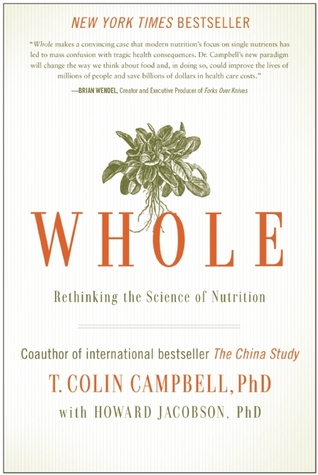 Having enjoyed T. Colin Campbell, PhD’s earlier book The China Study I was pleased to see his recently released book Whole: Rethinking the Science of Nutrition.
Having enjoyed T. Colin Campbell, PhD’s earlier book The China Study I was pleased to see his recently released book Whole: Rethinking the Science of Nutrition.
Campbell has long been an outstanding advocate of a Whole Food Plant Based Diet as the answer to creating great health. The Jacob Gould Schurman Professor Emeritus of Nutritional Biochemistry at Cornell University, Campbell has authored hundreds of scientific studies and reviewed many others that have shown that diet has a bigger impact on our health than anything else. He writes:
“All our trillions of dollars [spent on health care] are not improving our health outcomes. The promised breakthroughs are always a decade away and recede just as fast as we chase them.”
“The good news is we don’t need medical breakthroughs or genetic manipulation to achieve, maintain, and restore vibrant health. A half century or research–both mine and that of many others–has convinced me …”
“First, nutrition is the master key to human health period. Second, what most of us think of as proper nutrition–isn’t.”
“In short: change the way you eat and you can transform your health for the better.”
Campbell explains that somehow despite decades of overwhelming evidence, the establishment nutrition “experts”, doctors, and scientist haven’t accepted this. Whole attempts to explain why this is. Campbell reveals in this book how the prevailing “reductionist” approach to nutrition, medicine, and science in general has led to misinformation, bad science, bad medicine and big profits for big business.
“If you are a reductionist, you believe that everything in the world can be understood if you understand all of its component parts. A wholist, on the other hand, believes that the whole can be greater than the sum of its parts. That’s it: the entire debate in a nutshell. But the debate is one that has been raging among philosophers, theologians, and scientist since antiquity. Is this just academic philosophy, the equivalent of arguing about how many angles can dance on the head of a pin? Hardly. As we’ll see, choosing one paradigm or the other leads to very different approaches to science, medicine, commerce, politics and life itself.”
He reminds us of the story of the six blind men and the elephant. Each man is feeling a different part of the elephant: leg, tusk, trunk, tail, ear and belly. Each has a real good idea about what that one part is. But asked to describe what an elephant is each will have a different idea. One believes it is like a tree trunk, one believes it’s like a snake, etc. This is a reductionist view of an elephant.
While each is correct in part, none of them have an idea of what the whole elephant is or can do.
 Similarly if you have a reductionist view of an apple you might conclude that the vitamin C in the apples is what “keeps the doctor away.” So then let’s isolate that one aspect of the apple and recommend taking vitamin C supplements.
Similarly if you have a reductionist view of an apple you might conclude that the vitamin C in the apples is what “keeps the doctor away.” So then let’s isolate that one aspect of the apple and recommend taking vitamin C supplements.
But we don’t know the whole story. A wholist view says maybe it’s the vitamin C in combination with some other aspect of the apple that makes the difference. The process of eating, digesting and absorbing an apple is an extremely complex process that is only partially understood. Maybe we need the fiber or some other chemical in the apple to make the vitamin C activate, or able to be absorbed efficiently. Or whatever. Therefore it is important to eat the whole apple.
The point is that by focusing on that one tiny part of an apple, (or elephant) we just don’t really get the WHOLE picture, the complete benefit, the full power. Maybe indeed we are creating something harmful.
It is quite profitable however. You can sell vitamin C pills, tinctures, powders, injections, products with added C, books about it, etc. You can not patent or brand an apple. Thereby limiting its profitability.
While practicing medicine, MDs are trained to apply a reductionist view to health and medicine and look at a particular symptom or disease in isolation. They as a rule have learned to focus on treating a symptom or disease without considering the whole person and what is causing the problem.
Once again profits are bigger this way. Big pharma and corporate medicine design expensive drugs and procedures that claim to make that disease or symptom go away. Poor health habits such as high fat, high sugar, animal based, inflammatory diets, lack of exercise, lack of sleep, smoking, and heavy alcohol consumption–known factors leading to death and disability are disregarded. Some physicians gratuitously offer platitudes about making nebulous lifestyle changes, believing all the while you won’t do it.
The money is in selling easy, quick fixes for the numerous real and imagined problems that we may face on a day-to-day basis. Unfortunately, these fixes Campbell argues, are often ineffective if not out-right dangerous.
“What I want you to take away from the examples I’ve included here is just how much money there is to be made by suppressing wholistic nutrition in favor of reductionist health solutions, and just how far industry will go in pursuit of a larger share of that profit. In our current health care system, these examples aren’t exceptions; they’re business as usual. What looks like industry contributions to our well-being are often pure profit plays, dressed up as health initiatives.”
Campbell examines the prevailing reductionist paradigm in nutrition, research, biology, genetics, medicine, supplements and social policy. He outlines the power behind this paradigm and how each player, industry, research, media and government play their part in insuring this reductionist paradigm stays in place.
Campbell suggests we need a paradigm shift to wholism, looking at our health, at nutrition, and at science with a wholist point of view. He relates how he has for decades been working to get the power players to make the shift to understanding the power of nutrition and the wholism paradigm but they aren’t listening and they aren’t interested.
“The most important step is to change the way you eat. The diet is simple: eat whole, plant-based foods, with little or no added oil, salt or refined carbohydrates like sugar or white flour. … There is nothing more convincing than experiencing the change for one’s self. That crucial shift in the way we think about our health will happen one person at a time.”
Whole is a clear, wise, refreshingly honest expose and analysis of the system that’s killing us. Campbell uncompromisingly calls the cards on the table, imploring the reader to approach their health and ultimately life itself in what one day will be considered the only prudent, rational and logical approach to living. In the future if humanity survives, the words conservative (as in conservation) and wholistic will be used interchangeably.
“It’s time for us to begin a real revolution–one that begins by challenging our individual beliefs and changing our diets, and ends with the transformation of our society as a whole.”
Sounds like a Food Revolution to us! Have you joined the revolution?
To get a copy of Whole: Rethinking the Science of Nutrition click here to go to Amazon.com.

